
EDI 2025 Banner
7th Annual Equity Development Institute
The Story of Us: Advancing Equity through Evidence – Friday, May 2, 2025
A day dedicated to equity-focused professional development as a way to live out our institutional commitment to our Core Themes. No classes will take place this day to ensure full participation from our staff, faculty, and administrative leadership community. All staff and faculty are expected to attend. If you have questions, please email the Equity Task Force
EDI Day Planning Committee 2025
Ahmed Fahad, Amy Rider King, Dr. E.T. Elwin, Dr. Eric Baer, Edwina Fui, Emily Coates, Natalie Bjorge, Gum-Lai Ross, George Lopez, Julie Pollard, Keliko Adams, Kelly Betancourt, Krystal Welch, Loyal Allen Jr., Dra. Maribel Jimenez, Raman Kaur, Rickitia Reid and Patricia McDonald
AGENDA
8:00-8:30am – Breakfast in Bldg. 8, Mt. Townsend
8:30-9:10am – Welcome and Activity
9:15-10:30am – Keynote Speaker: Jeneca Parker-Tongue
Humanizing Data: Listening, Learning and Leading for Belonging
Location: Bldg. 8 – Mt. Townsend
Description: Data is often viewed as numbers, trends, and outcomes—but what if we centered the stories behind the data to deepen our understanding of equity in higher education? We will examine how our own belonging stories, the stories of the students we serve, and the ways we tell our institutional stories impact equity efforts. This keynote will challenge us to rethink how we balance data-driven action with relational ways of being, emphasizing that true equity work is not just about measuring outcomes—but about seeing differently, listening deeply, and leading in ways that build belonging.
Learning Outcomes
- Identify how personal and professional experiences shape our understanding and use of data.
- Explore what it means to embody belonging in our own leadership, scholarship, and practice.
- Understand how creating spaces for storytelling fosters connection, empathy, and institutional transformation.
- Learn strategies to deepen listening practices and elevate the voices of students, faculty, and staff.
- Identify commitments and next steps to humanize data and foster belonging.
10:30-10:40am – Data Deep Dive Introduction
10:40-10:55am – Transition to Departments
10:55am-12:15pm – Data Deep Dive
Deep Dive into Data: Understanding Highline Student Experiences
Embark on a collaborative exploration to better understand the lived experiences of Highline students and uncover how your department or area significantly impacts their journey. Highline College employees will be guided through a tool designed to reveal the nuances and implications of the data presented, fostering more cohesive comprehension.
The insights we gather will be crucial in shaping the 2025/26 Institutional Effectiveness Plans and setting future goals for your department or area. Moreover, this is a unique opportunity to enrich your team’s discussions by integrating any data you or your department/area collect independently, outside of the institutional research team’s data.
12:15-1:15pm – Lunch
1:15-2:45pm – Workshop Sessions
Building Beloved Community: Inner and Outer Work of Transformation (Executive Cabinet Members ONLY)
Presenter: Jeneca Parker-Tongue
Location: Building 8-207 (Mt. Skokomish)
This 90-minute session invites Executive Cabinet members into a circle of reflection, connection, and dialogue. Building on themes from the keynote, we will explore the essential practices that support the creation of a Beloved Community—practices that begin within and extend outward. Through storytelling and collective inquiry, we’ll examine how personal awareness, relational integrity, and organizational culture intersect to shape a community rooted in equity and belonging.
The Story of Disability Justice: Advancing Equity Through Action
Presenter: Davi Kallman
Location: Building 19 – Room 101
Disability justice is an essential part of the broader equity movement, yet it is often overlooked in conversations about institutional change. As we explore The Story of Us: Advancing Equity Through Evidence, we must recognize how ableism is deeply embedded in our systems of education, employment, and social structures—and how it intersects with racism, sexism, homophobia, and other forms of oppression. Despite legal protections, disabled people continue to face disproportionate barriers in education and employment, with the unemployment rate for disabled individuals remaining more than double that of their nondisabled peers. These disparities are not accidental; they are the result of systemic discrimination, inaccessible policies, and a lack of institutional accountability. This session will examine how ableism operates within institutions of power, how disability is historically and culturally framed, and how these narratives impact equity efforts in higher education. Through an interactive discussion, participants will identify ableist practices within their own roles and collaborate on strategies to dismantle these barriers. By centering disability justice, faculty, staff, and students can become active agents in normalizing disability, advocating for policy change, and ensuring accessibility is woven into the fabric of equity work. Join us for a powerful conversation that will challenge assumptions, provide actionable tools, and deepen our collective commitment to advancing equity through disability justice.
Gender 101
Presenters: Adrianna Suluai, Tweetie Fatuesi and Amasai Jeke
United Territories of Pacific Islanders Alliance (U.T.O.P.I.A)
Location: Building 29 – Room 201
This presentation explores the diverse ways people understand and express their gender. We will delve into the experiences and identities of Trans and Gender Diverse individuals, clarifying key concepts and debunking common misconceptions. Participants will also learn the distinction between Gender Identity and Gender Expression, gaining tools to foster inclusivity and support within their communities.
Slowing Down to Integrate the Story of Us: A Sound Bath Wellness Experience
Presenter: Tai Mattox
Location: Building 8 – Mt. Constance/Olympus
The work of advancing equity, particularly in today’s climate, can be especially challenging and overwhelming. It is critical work, and it is work that can take a toll on one’s mind and body. While the Equity Development Institute offers opportunities to build, learn and strategize together, it’s equally important to create spaces to pause, integrate our learning, and give ourselves permission to slow down and tend to our collective wellness. In this workshop, we will tend to our collective wellness by starting with a reflection tied to the day’s work, we’ll then move into gentle stretching, followed by a guided breathwork and sound bath experience. We will conclude our session with time for journaling. A sound bath is a meditative experience where participants are “bathed” in the healing vibration of sound waves. There is no water in a sound bath. These waves are produced by various sources, including metal and crystal singing bowls, percussion, chimes, rattles and other instruments. The resonant sounds produced during a sound bath can help settle the nervous system and facilitate relaxation and rest. This is a great opportunity for participants to slow down and allow the mind and body to integrate all of the learning that has taken place. Sound Baths are usually experienced lying down (on a yoga mat, blanket or comfortable surface) and can also be experienced comfortably in a seated position. No experience is necessary, and a willingness to shift from constantly doing to simply being is encouraged.
Every Flower has a STEM
Presenter: Dr. Rob Rubalcaba
Location: Building 3 – Room 102
We introduce Dilla Time as a framework for our amazing Black and African American students to thrive in STEM. With producer J Dilla as inspiration, we will describe how to revolutionize how we think about time in our classrooms. Not all students learn linearly, yet in most STEM classes the syllabus is structured linearly with topic 1 on day 1, topic 2 day two, etc. Often this linear structure has its roots in deficit minded thinking. With Dilla Time, just as producer J Dilla changed the way we listen to music, we can change how we structure time in our class which can create a sense of FOMO (fear of missing out) from students being excited and motivated by culturally relevant activities, such as math through hip hop and dance. Dilla beats and samples all have different lengths and speeds, some slow, some fast, some shorter, some longer. Teaching and learning math through Dilla Time, no student is left behind or told that math is just not their subject. We also discuss the importance of intentionally providing support for students with different learning styles and paces. We also share how students who may have struggled with or hated math before can love math and become leaders to teach other students.
How A2MEND Advances Black Male Success in Higher Education
Presenters: Erin Vines, Ph.D., Trevor Brackett-Lambey, Ph.D., Herbert L. English, Jr., Edward Bush, Ph.D. and Abdimalik Buul, Ed.D, (Board Member-at-Large)
Location: Building 19 – Room 202
A²MEND Panel Presentation: Advancing Black Male Success in Higher Education Join A²MEND (African American Male Education Network and Development), a leading 501(c)(3) nonprofit dedicated to transforming higher education to better serve Black male students. Led by Black male educators, A²MEND leverages scholarly research and professional expertise to foster institutional change, empowering Black men to succeed in community colleges and beyond. This dynamic panel will explore the systemic challenges impacting Black male students and highlight proven strategies for fostering academic success, leadership development, and holistic well-being. Panelists will share their lived experiences, research, and actionable insights, emphasizing A²MEND’s mission to close equity gaps and create pathways for Black male excellence. Key Topics Include: A2MEND Programing (Student Charter, Leadership Academy, Africa Study Abroad, Annual Conference, ADES Ghana Conference) Strategies for building culturally responsive support systems Opportunity to have an A2MEND Charter on your campus with initial funding
Impactful Change Management: Differentiated Engagement
Presenter: Kip Zwolenski
Location: Building 29 – Room 216
In many ways, communities of higher education reflect the communities in which they are situated. Equity and racial justice initiatives must take into consideration the wide range of ideology, knowledge, and experience of educators to be successful. Practically, this means offering multiple, contextualized, differentiated opportunities of engagement that meet educators where they are. The presenter will share Skagit Valley College’s journey of utilizing Bensimon’s framework of First Generation Equity Practitioners to engage the whole campus community. There will be facilitated discussion on strategies to use on your own campus.
Atomic Habits within Equity Building
Presenter: Charles Ward
Location: Building 21 – Room 116
Equity initiatives can seem overwhelming, but by focusing on small, consistent changes, progress can be made incrementally. This session will focus on creating a professional identity as an equity advocate or ally. This means consistently demonstrating equitable behaviors and actively challenging inequitable practices. Rooted in “The Four Laws of Behavior Change,” Atomic Habits focuses on personal and professional growth through consistent change; its principles can be utilized to design and maintain a more equitable environment by creating and strengthening inclusive behaviors and systemic improvements, rather than solely focusing on individual actions. Equity requires systemic change. Instead of focusing solely on individual actions (e.g., a single person’s behavior such as becoming an equity champion or the grant writer), focus on the importance of building good systems and habits that create a more equitable environment and outcomes. People come and go but systems are there to support impermanence. These challenges are supported by the culture and systems that you have created at Highline College. Participants will engage in a Habit Looping & Habit Stacking for Equity Activity to illuminate how easily negative reinforcement unconsciously becomes a natural part of our behaviors, a path of reflection and discovery that leads to questions and/or solutions.
2:45-3:00pm – Transition Time
Light Snacks available in Bldg.8 – Mt, Townsend
3:00-3:45pm – Culture & Identity-based Groups
3:45-4:00pm – Transition Time
4:00-4:30pm – Closing Reflection & Activity
Speaker Bios
Jeneca Parker-Tongue
Keynote Presenter
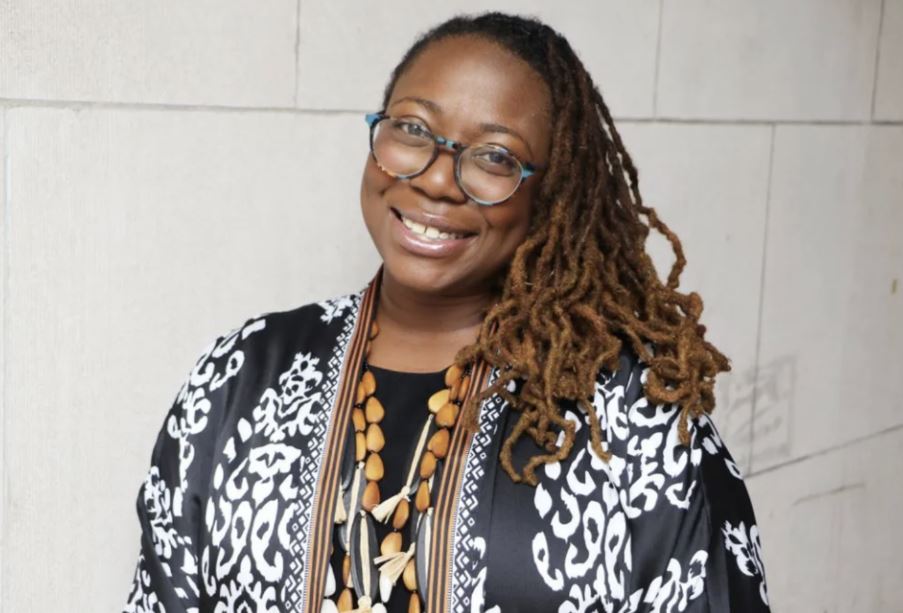
Jeneca Parker-Tongue is a Distinguished Lecturer of Educational Leadership at Hunter College and the Founding Director of the Hunter College Collaborative for Social Emotional Learning & Leading (C-SELL). With experience ranging from early childhood to high school, Jeneca has served as Principal and Assistant Principal within NYC Public Schools for over ten years, where she has demonstrated strength in designing collaborative structures that support academic and social-emotional needs for racially, culturally, and linguistically diverse students. She coaches adults to enhance emotional intelligence for effective school leadership. In 2023, she was awarded the Distinguished Principal Award of Manhattan by MSPA and national SEL Leadership award by BlackSEL. She is also a current doctoral student in Educational Leadership. Her research interests explore leadership studies in placemaking. Toward this goal, she examines the social context of education, human geography, and emotional intelligence of school leaders by mapping internal and external geographies of belongingness in schools.
Davi Kallman, Ph.D.
Workshop Presenter
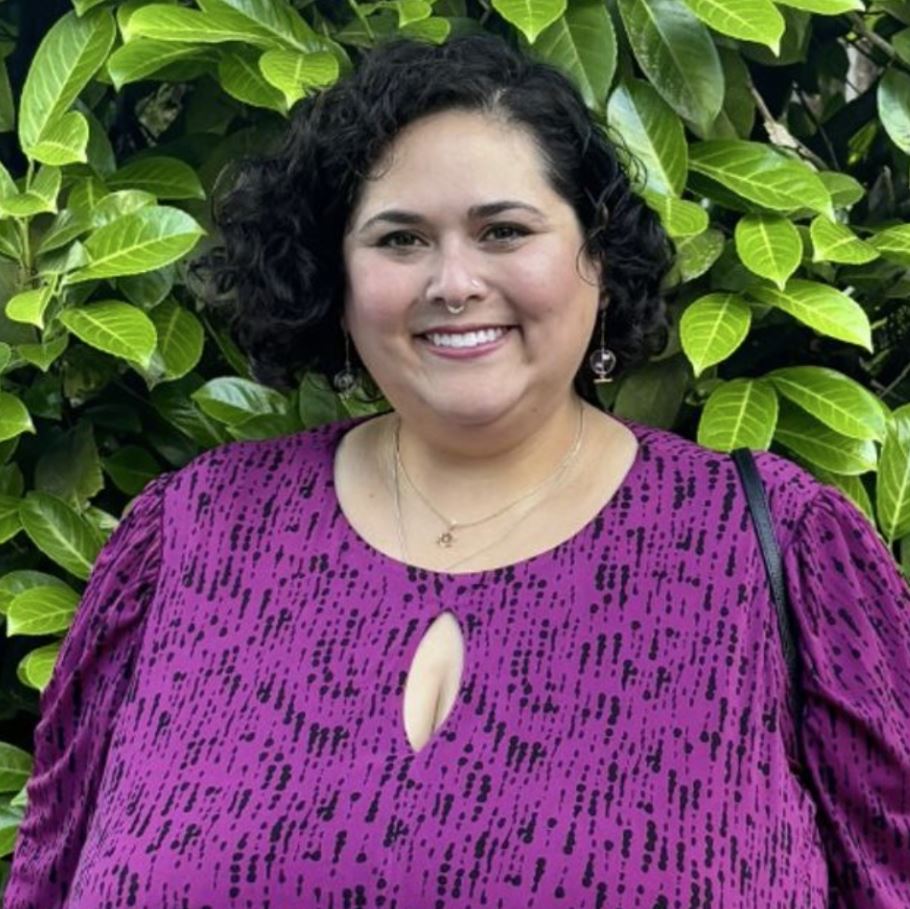
Dr. Davi Kallman is a leading expert in disability justice, accessibility, and institutional equity, with a deep commitment to dismantling systemic barriers in education and event spaces. As the Dean of Student Engagement Services and ADA/504 Coordinator at Pierce College, she works to ensure that disability inclusion is not just an afterthought, but a foundational part of institutional policies, programs, and culture. With extensive experience in higher education, Dr. Kallman has served as a Director of Disability Services, where she worked directly with students, faculty, and administrators to create more equitable learning environments. She also conducts accessibility audits for hotels and conference venues, ensuring that public spaces go beyond compliance and embrace true inclusion. Her expertise extends into advocacy, policy development, and the intersection of disability with race, gender, and economic justice. Dr. Kallman has previously served as Chair of the Disability Issues Caucus within the National Communication Association (NCA), where she worked to amplify conversations around disability justice and representation in higher education. Her research and practice focus on the ways institutions can move from basic accessibility compliance to proactive disability inclusion, ensuring that disabled individuals, particularly those from marginalized communities, are fully included in educational and professional spaces. As a Mexican, Jewish, disabled, and neurodivergent woman, Dr. Kallman brings both personal and professional expertise to her work, offering a unique and deeply informed perspective on the urgent need for equity in education. Through her dynamic and engaging presentations, she equips faculty, staff, and institutional leaders with the tools to recognize ableism, challenge exclusionary practices, and reimagine their spaces as truly accessible for all.
Adrianna Suluai
Workshop Presenter
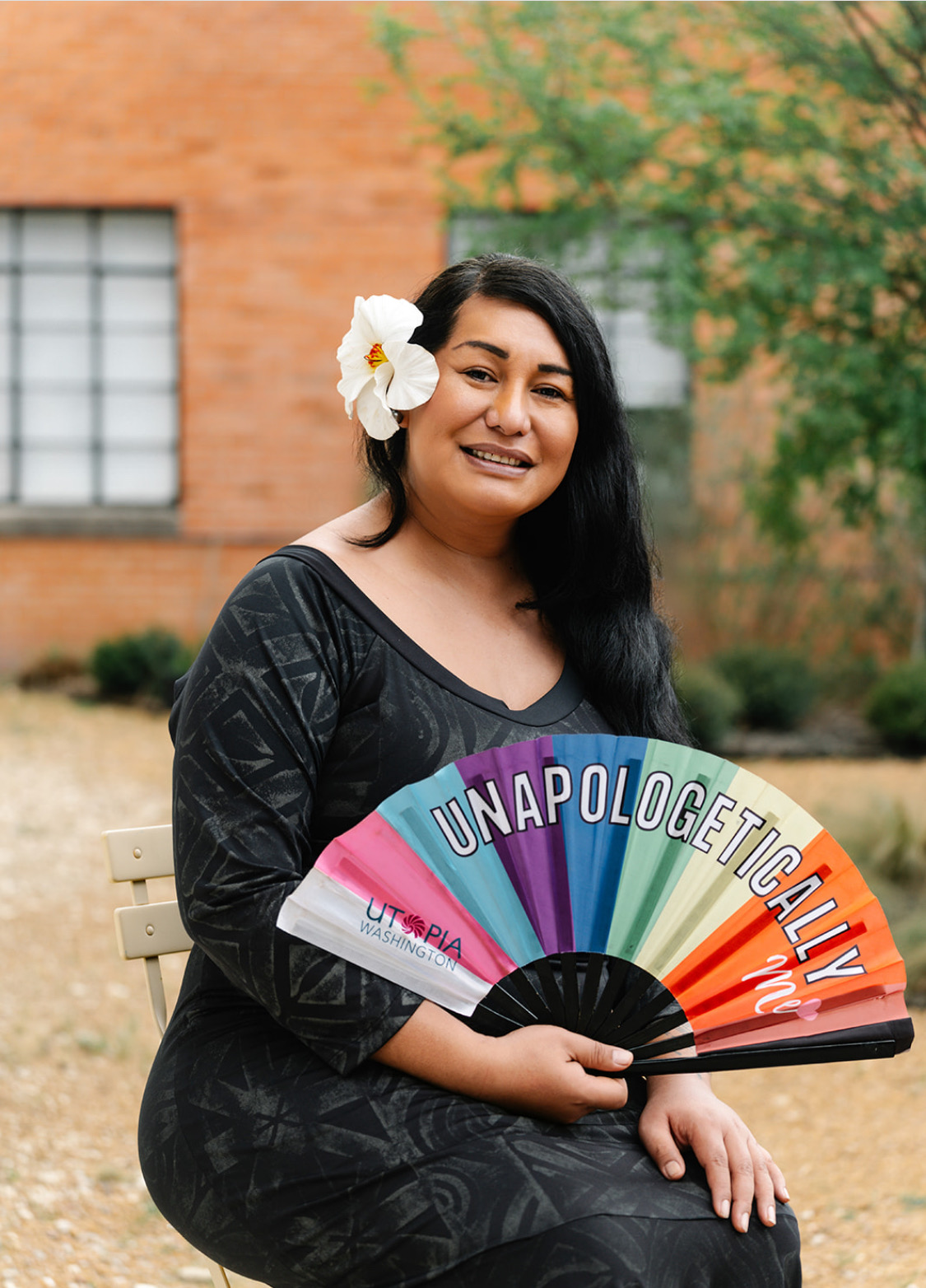
Adrianna (Suga/She/Her) is a proud and unapologetic Faʻafafine from the beautiful islands of Samoa, dedicated to uplifting Queer and Transgender Pacific Islanders (QTPI) and Native Hawaiian and Pacific Islander (NHPI) communities. Since making her way to the Pacific Northwest in 2003, she has been at different forefronts of advocacy, sitting in various coalitions and now currently serving as the Policy Director for UTOPIA WA. Her work focuses on civic engagement, environmental justice, harm reduction, gender-based violence prevention, and dismantling systemic barriers, ensuring that marginalized communities have access to vital resources and opportunities. With lived experience in direct support services, she brings a community-centered approach to advocacy. In her free time, she enjoys spending time with her two fur babies, Ocean and Popo. Adrianna remains steadfast in her mission to create a future where marginalized communities can thrive authentically and without barriers.
Tweetie Fatuesi
Workshop Presenter
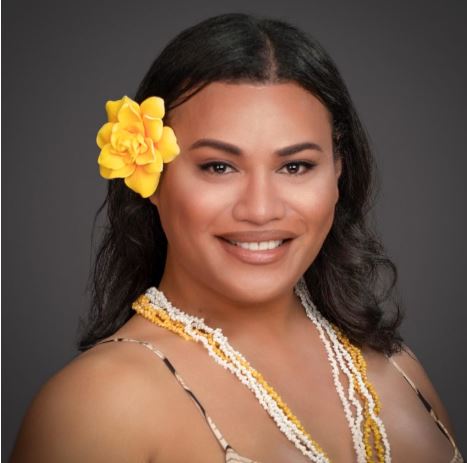
Tweetie Fatuesi is native to the Pacific Island Territory of American Samoa. Since migrating to the PNW in 2013, she has been cultivating pathways with UTOPIA Washington through multiple volunteer opportunities. Through this work, she recognized existing barriers in place that limited the quality of life for communities of color; particularly the Queer and Trans Pacific Islanders (QTPI’s) community. She officially joined UTOPIA WA in 2019 and now serves as the Community Services Program Director where she leads direct support programs and mutual aid support for marginalized communities through, Civic Engagement, Food Insecurity & Food Sovereignty, Care Work and more. In her spare time, Tweetie is on an endless quest to finding the next best seafood place in town, visiting with family and friends, and exploring more of what the PNW has to offer.
Amasai Jeke
Workshop Presenter
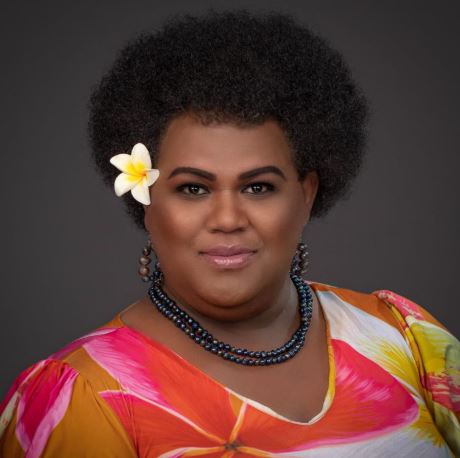
Ms. Amasai Jeke a young Feminist Indigenous I-Taukei Fijian is an adamant and very outspoken person who adores and thrives in creating awareness and advocating on human rights, mainly on Gender Equality and LGBTQI rights. She has been involved in the Feminist and LGBTQI movement for more than six years and worked as the Project Support Officer for Rainbow Pride Foundation [RPF] in Fiji and Coordinated the Transgender Reference Group for RPF.She has organized in community as a working group member for the Peer Support Group on Sexual and Reproductive Health and Rights and the Pacific Urgent Action Hub on Climate & Ecological Justice that works with LGBTQI people in the Grass-root community in Fiji. She is also a core working group member for the Youth Voices Count an Asia-Pacific regional LGBTQI Youth Led Organization. MS. Jeke is also a member of the Women’s Major Group for Sustainable Development and Women & Gender Constituency for Climate Change Negotiations with UNFCCC which is the United Nations Major Groups on Women and YOUNGO which is the official youth constituency at the United Nations Framework Convention on Climate Change (UNFCCC).
Tai Mattox
Workshop Presenter
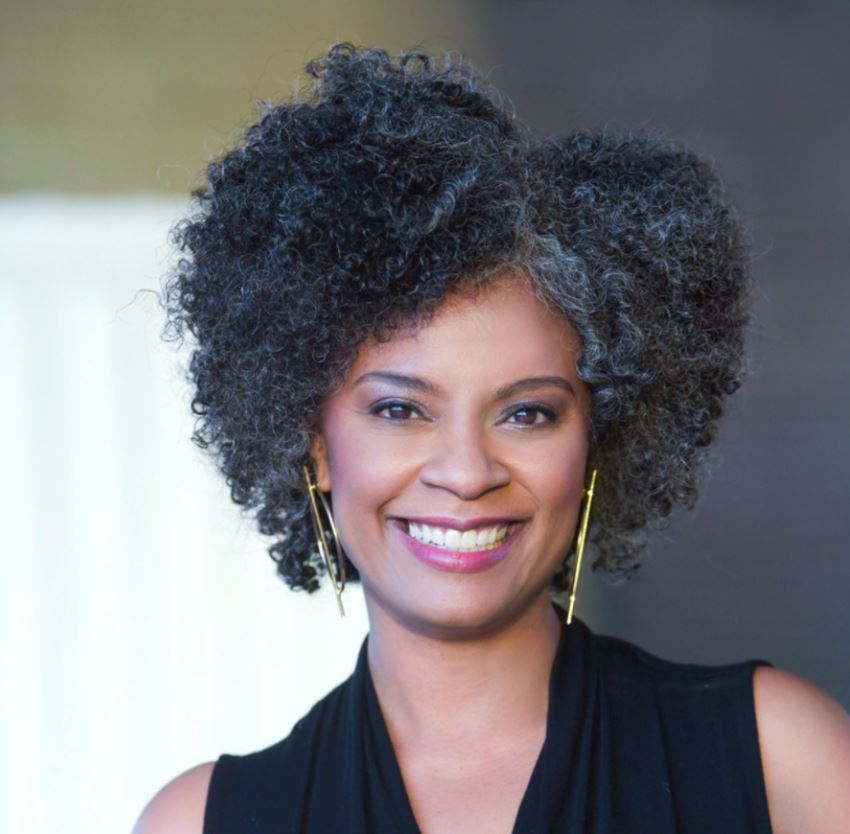
Tai Mattox (she/her) is a Chopra Center certified Primordial Sound Meditation instructor, Registered Yoga Teacher (RYT-200), and Certified Vibrational Sound Therapy practitioner. Her greatest joy is helping people slow down, get still and connect to their inner knowing. As the founder of Experiences by Tai, she facilitates this process through meditation, mindfulness, gentle yoga, sound baths and vibrational sound therapy. Tai has taught meditation and mindfulness to adults in numerous settings, including non-profit organizations and for-profit companies, community groups, educators, online to global audiences, and one-on-one private instruction. Tai has also worked with children and youth from ages 4 to 22; some with documented disabilities, some who are justice-involved, and many in traditional educational institutions, sharing mindfulness exercises to assist them with emotional balance, self-management and present moment awareness. In order to devote her energy, time and passion to Experiences by Tai full time, she stepped down from her role as a Co-Director with Space Between, a non-profit that brings mindfulness practices to school communities, working with students, educators and families. Prior to discovering the path of stillness, Tai managed a career with Four Seasons Hotels & Resorts for almost 20 years. She is a graduate of Cornell University. Tai is devoted to family, friends and causes that she believes in, with all relationships being reciprocal, loving and kind. She was raised in Seattle and lives in the Central District with her family. Dark chocolate peanut butter cups and the sound of her son’s laughter bring her immense joy.
Rob Rubalcaba, Ph.D.
Workshop Presenter
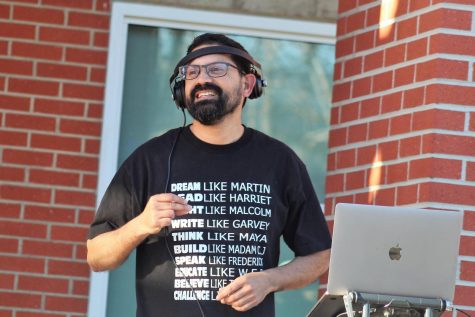
Dr. Rob Rubalcaba is a Math Professor at San Diego City College. He was born in Lemon Grove, on the same street where Lemon Grove Elementary planned a separate school for all of its Latino students. He stopped going to Morse High in the 10th grade because of gang violence and he attended Centre City Adult School to pursue a GED, then attended City College majoring in Mathematics with only a 9th grade education in Math. He graduated and transferred to SDSU earning a BA in Mathematics and attended graduate school at Auburn University earning a Masters and Ph.D. in Discrete Mathematics. Dr. Rob then worked with the Department of Defense working in secret facilities around the world before joining the Math Department at City College where he co-teaches in UMOJA and PUENTE. He is a professional DJ and sushi chef, and teaches mathematics through hip hop, art, sushi, and dance.
Erin Vines, Ph.D.
Workshop Presenter
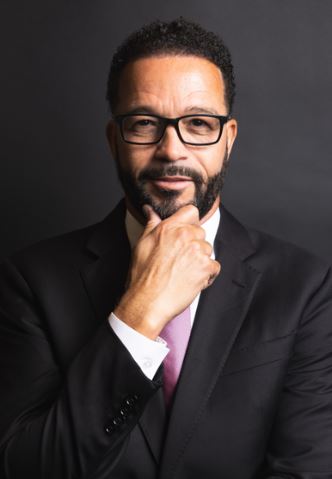
Dr. Erin Vines currently serves as the Executive Director for the African American Male Education Network and Development (A2MEND) and is also a board member of the organization. Previously Dr. Vines served as Assistant Superintendent/Vice President of Student Services at Antelope Valley College for nine years. Prior to joining AVC, Dr. Vines served as Dean of Counseling and Special Services at Solano Community College for seven years. Dr. Vines served as adjunct faculty at California State University, Northridge in both the master’s and doctorial programs. He served as full-time faculty, classified, and administrator at the secondary level prior to entering into higher education. Dr. Vines has a true understanding of the many challenges related to enrollment, retention and student success that confront community colleges today. He also knows firsthand as a community college graduate and experience as a community college leader that a positive campus culture, challenging coursework, supportive faculty, effective supplemental instruction and sound innovative leadership can enhance a student’s experience while fulfilling the mission of the college. Dr. Vines earned his doctorate from the University of Southern California in Educational Leadership. He earned two Master’s Degrees, one in Education Counseling from California State University, Bakersfield and the other from the University of LaVerne in Educational Leadership. Dr. Vines is married and has one teenage daughter. In his spare time he enjoys to travel, read, play golf and watching sports. He is also a mentor to many students and professionals.
Trevor Brackett-Lambey, Ph.D.
Workshop Presenter
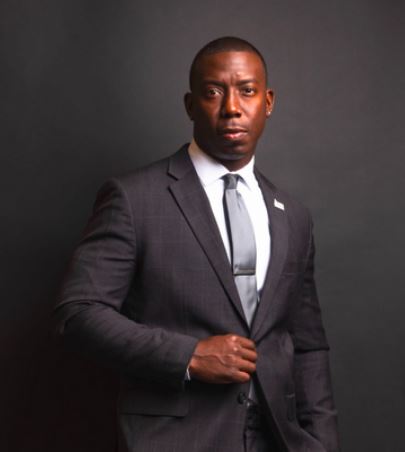
Dr. Trevor Brackett-Lambey was born and raised in South Central, Los Angeles where he attended Manual Arts High School, and graduated from Hollywood High School. He then attended College of the Canyons, where he played football and was an All-American Wide Receiver. Trevor eventually received a full-athletic football scholarship to the University of Nevada-Reno where he transferred in 2004. Although Trevor was a standout athlete, he believes education is the key to success for all students and student-athletes, and sports should be the second calling. He earned his Bachelor Degree from University of Nevada-Reno in 2006, Masters Degree from Fresno Pacific University in 2014. He recently completed his Doctorate at San Diego State University in Educational Leadership with a concentration in community College/Post-Secondary Education. Brackett-Lambey is determined to make a difference in the lives of every student he encounters to assure them that it doesn’t matter where they come from through hard-work and dedication, he is passionate in making them believe that they too can achieve anything they set their minds to. Dr. Trevor Brackett-Lambey is currently a Counselor/Associate Professor, at Pasadena City College. He also works with the current and formerly incarcerated population, while giving lectures in Career and Life Development courses within the California Department of Corrections (CDCR), and Los Angeles County Jail Systems. Dr. Brackett-Lambey is determined to inspire “hope” with this population, as he feels that capitalizing on second chances is vital for life success. His dissertation is titled “From Street Cred to School Credit: Creating A Pathway From Incarceration Into A Community College Amongst Formerly Incarcerated Black Males in Los Angeles County”.
Mr. Herbert L. English, Jr.
Workshop Presenter
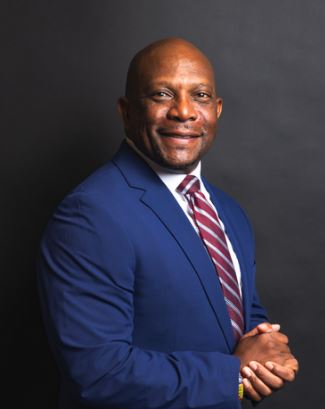
“Herb” has over 16 years of experience in higher education with 13 of those years in the California Community College system. Herb currently serves as the Vice- President of Student Services at West Hills College Coalinga in Central Valley California. Herb has served as the Director of EOPS/CARE, CalWORKs, Valley- Bound Commitment an award winning First Year Experience program and Dean of Student Equity and Success at Victor Valley College. Herb also served as an academic advisor and p/t faculty teaching First Year Experience at CSU San Bernardino. In addition, Herb has served on numerous college, district, and state-wide committees throughout his career and has been active in several community organizations including serving on the Board of Directors for the Boys & Gils Club of San Bernardino and the African American Male Educational Network and Development (A²MEND). Herb is an innovative leader that has a history of developing programs and services that foster both student access and success; including the development of targeted programs for historically underserved populations. Herb has also worked as a Social Worker for Riverside County Child Protective Services and Executive Director of the Boys & Girls Club of San Bernardino. He loves working with young people and inspiring them to pursue a college education. Herb received his Bachelor of Arts degree in Sociology from California State University, San Bernardino, Master of Arts degree in Education with an emphasis in Curriculum and Instruction from University of Redlands and is presently pursuing his doctorate degree at Bradley University in Educational Leadership.
Edward Bush, Ph.D.
Workshop Presenter
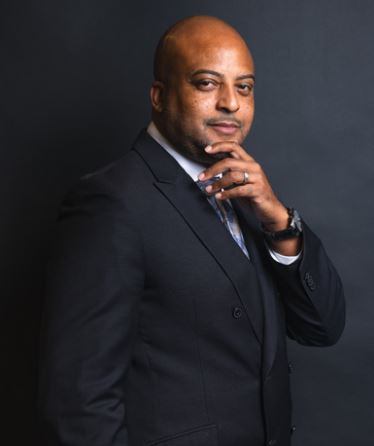
Edward C. Bush Ph.D. began his career in higher education in 1995 and has worked in the California Community College System since 1998. He is well known throughout the State of California as a leader who has been able to reimagine traditional institutional practices. Dr. Bush holds a Ph.D. in Urban Educational Leadership from Claremont Graduate University, a Master of Arts Degree in Public Administration from California State University San Bernardino, and a Bachelor of Arts degree in Political Science from the University of California Riverside. Dr. Bush currently serves as the President of Cosumnes River College in Sacramento. He is a student success-focused leader with a clear vision and expertise in leading organizations through periods of change and structural disruption. Dr. Bush is an educational visionary whose innovative approach has improved student outcomes while reducing both achievement and opportunity gaps for students of color and other historically marginalized student populations. Dr. Bush is dedicated to creating teams of Educators who are committed to working towards meeting the evolving needs of students and the communities in which they serve. As a scholar-practitioner, Dr. Bush is committed to tackling issues relating to equity, diversity, and access for all students. His leadership expertise includes his involvement in statewide, national, and international committees and initiatives. Moreover, Dr. Bush is a co-author of multiple books and book chapters and has published 14 peer-reviewed publications in a variety of scholarly journals. Dr. Bush has a history of developing programs and services that foster student success as well as creating successful targeted programs for underserved populations. He is a Co-Founder and Board Member of the African American Male Network and Development, Incorporated (A2MEND). A2MEND is a non-profit organization comprised of Community College Faculty and Administrators who volunteer their time to use their scholarly and professional expertise to foster institutional change within the Colleges they serve. A2MEND is a nationally recognized organization that has successfully improved the educational outcomes for men of color enrolled in the California Community College System. Dr. Bush also currently serves as a Board Member of four non-profit organizations and is the Chairperson for the All African Diaspora Educators Summit. Dr. Bush has presented his strategies for improving student outcomes for numerous national, statewide, and local organizations.
Adbimalik Buul, Ed.D
Workshop Presenter
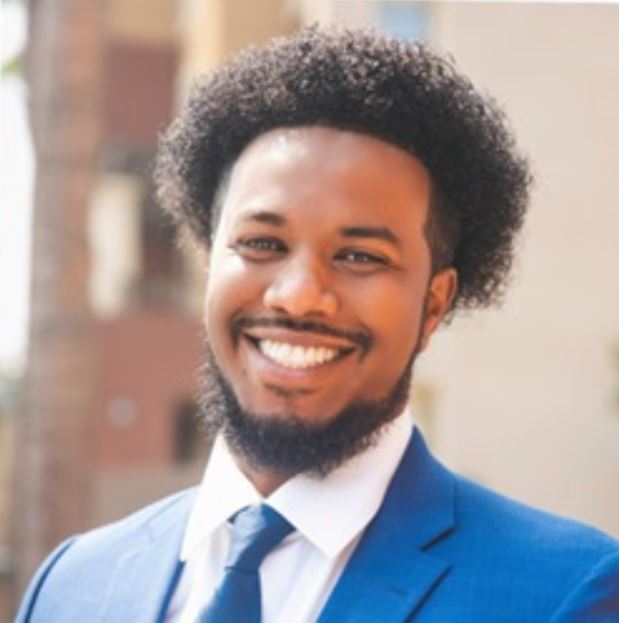
Dr. Abdimalik Buul is currently serving as the Visiting Executive of Institutional Equity, innovation and strategic impact at the California Community College Chancellor’s office. During this tenure he is assisting in ensuring equal employment opportunities and initiatives are connected to the classroom for the largest system of higher education in the nation comprising over 116 colleges and 73 districts. He is also an award-winning professor, antiracist activist, and emancipatory educator. Known as an international keynote speaker and innovative dynamic leader. He co-chairs the Statewide Equal Employment Opportunity Diversity Advisory Committee (EEODAC) and oversaw its deployment of the 2022 EEO Best Practices handbook and 2023 Ten Point Plan for faculty diversification. Under his leadership he crafted a funding allocation for $20 million-dollars in EEO funding to improve equitable hiring practices for the state of California. He is a scholar practitioner with over 10 publications in the fields of Diversity Equity Inclusion Accessibility and Antiracism. He has a keen focus on racial equity and an asset based approach on countering Anti-Blackness . He completed his bachelor’s degree in Sociology and a master’s degree in education with an emphasis in community-based counseling and social justice, both from San Diego State University (SDSU). He completed his doctorate work in Educational leadership with an emphasis in Educational Psychology from the University of Southern California (USC). Dr. Buul is also a lecturer at San Diego State University (SDSU) where he teaches Restorative Practices and Conflict Transformation to students in the Advanced Graduate Certificate in Mental Health Recovery & Trauma-informed Care MA in Education with concentration in Counseling program. Dr.Buul conducts numerous speaking engagements, workshops and keynotes for multiple system stakeholders as he specializes in providing equity based strategic solutions to organizations and institutions.
Kip Zwolenski
Workshop Presenter
Kip Zwolenski is an Early Childhood Education instructor. He has served as the faculty union president for the past seven years.Kip comes to Skagit with a breadth of experiences ranging from direct service in both early childhood and youth settings to administrative roles in higher education. His expertise in program development centers on academic pathways and inclusion. Kip’s undergraduate studies focused on child literacy in bilingual settings; whereas his graduate research concentration was on adult literacy and teacher preparation. Kip has developed both faculty and administrative learning groups that are providing the foundational knowledge for Skagit’s equity-based Student Achievement Strategy.
Charles Ward
Workshop Presenter
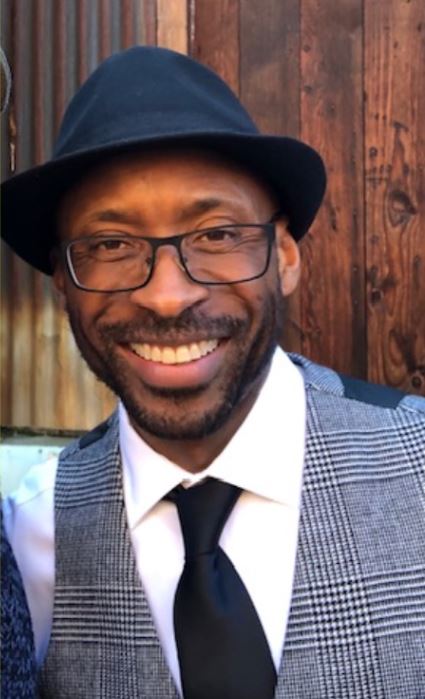
In his 36 years as a Special Education teacher, Charles Ward M.A. and M.Ed. has been privileged to work with students, teachers and support staff in a variety of K-12 settings in Seattle and Chicago. Over these years he has mentored no less than thirteen college students seeking to become a Special Education teacher. This mentorship was not just educational in nature; it was cultural as well to bring awareness and solutions to certain disproportionality within Special Education. Charles worked collaboratively as a member of the Professional Educational Advisory Board during Highline College’s development (curriculum) and sustainability (student pacing) of their teacher education program. This development has led to an affordable teacher program for those Black and brown individuals employed in education seeking teacher certification. In addition, he has been an active member for several decades in various roles within the Renton Education Association (REA). He has served as Special Education Department Lead for over twenty years at various educational levels. While Special Education Department Lead his knowledge of union rules as well as advocacy for change has benefited educational outcomes as well as teacher satisfaction and increased longevity. His instructional lead role in Special Education thru direct participation in Professional Learning Communities (PLC) and conducting professional development workshops with the staff have solidified his commitment to excellence, equity and equality for students and staff.

